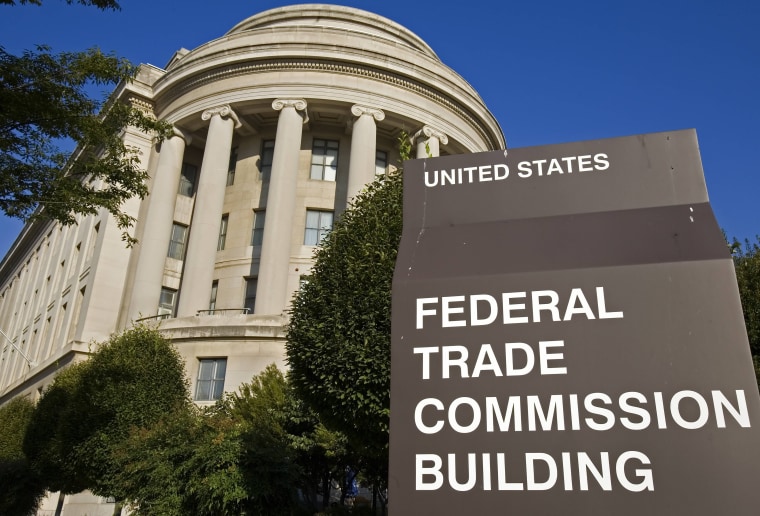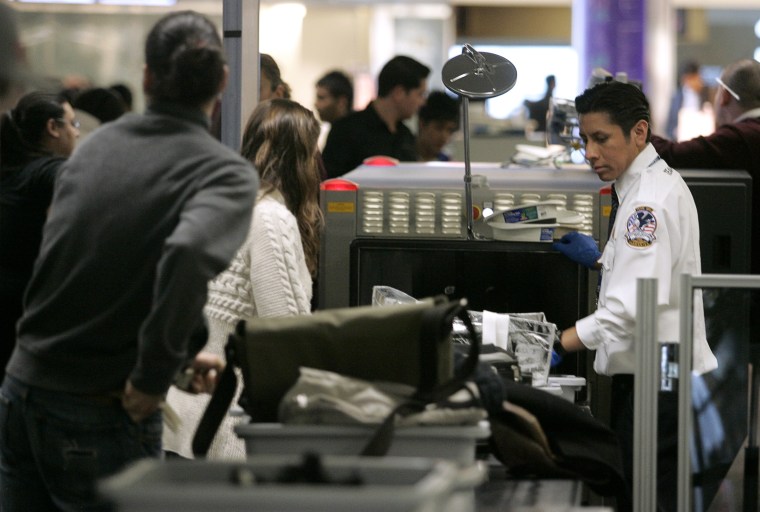In a perfect world, here’s how it would work: When you run into trouble on the road, you contact the appropriate government agency, and a few days later — problem solved!
For blogger and frequent traveler Gary Arndt, it was a perfect world.
Kind of.
While trying to visit the Pacific island nation of Kiribati recently, he was denied entry because of a visa mix-up.
“Unlike most countries, the visa stamp for Kiribati isn’t a sticker, but literally a rubber stamp with ink and they write the dates it is valid in pen,” he explains. “When I arrived in Kiribati, they denied me entry to the country because the pen ink on the stamp had bled off the page when my passport got wet.”
He fired off an angry letter to the head of the Republic of Kiribati’s tourism ministry, who in turn, contacted the country’s prime minister. And wouldn’t you know it? They changed the rule. Just like that.
“I’m told that if you land in the country and your visa can't be verified, you can have a three-or four-day grace period,” he says.
Back here in the States, the government does not change laws just like that. And it’s rarely as responsive as the tourism minister of 32 atolls and an island in the central Pacific. More often than not, travelers who complain to the government — particularly the federal government — get such empty promises as “look into the problem,” form letters, or no response at all.
Generally speaking, our government takes a hands-off approach to regulating travel companies and appears to be uncomfortable fielding consumer complaints. For example, the federal government doesn’t really have any meaningful regulatory authority over travel agencies, hotels and rental cars, and exerts minimal influence over airlines and cruise lines. (There’s not enough room to discuss the states, but even there, it’s a hit-or-miss proposition — some states are responsive and effective, others aren’t.)
Here are a few tips on when — and how — to effectively complain to the government:
Agency: Federal Aviation Administration
What it does: FAA is responsible for the safety of civilian aviation. Any grievances relating to maintenance improprieties, aircraft incidents or violations of Federal Aviation Regulation, would be handled by the agency.
How to contact it: The agency has one of the most helpful contact pages which not only puts you in touch with the right person at the FAA but also helps with other aviation-related complaints, directing you to the right agency.
Does it work? Sometimes. The FAA has a reasonably good record of responding to complaints, but it doesn’t always do what travelers want it to. Take Bonnie Russell, a San Diego, Calif.-based communications consultant who contacted the agency after her flight was diverted. The reason for being rerouted? A crewmember had fallen ill, causing a spectacle. “Some passengers thought we were crashing because within ten minutes of takeoff, she was on the PA crying,” she recalls. “A couple of people who couldn’t understand what she was saying through her crying thought we were going to crash.” An FAA representative phoned her and promised her the flight attendant would undergo some “retraining.”
Tip: The FAA doesn’t have a general-purpose troubleshooter, although curiously, it has a noise ombudsman. You can access key FAA officials at this page. (Most email addresses follow the firstname.lastname@faa.gov format.)
Agency: Department of Transportation’s Aviation Consumer Protection Division
What it does: Handles and reports air travel problems and complaints.
How to contact it: The agency maintains a basic Web site that explains how to get in touch with it.
Does it work? I’ve spoken with people inside the Transportation Department, and they say the agency is trying to become more responsive to the many complaints about airlines that it receives. Still, I continue to get plenty of gripes about the agency sending travelers form responses. Like reader Linda Bobbitt, who was upset about the airlines’ checked baggage fees and wrote to the agency to complain. “I immediately got a form reply saying, ‘We can’t tell the airlines what to charge, they say checked bags cost more, etc.’,” she says. “In other words, I was blown off in a form letter.”
Tip: There are no shortcuts that I’m aware of, although it isn’t too difficult to appeal any decision (or blow-off) directly to the General Counsel for Aviation Enforcement and Proceedings. Truth is, since airlines are considered “deregulated” there’s only so much this office is willing, and able, to do to help air travelers.
Agency: Federal Trade Commission
What it does: This independent agency protects consumers against unfair, deceptive or fraudulent practices and enforces federal truth-in-advertising laws. Theoretically, that includes anything relating to travel.

Does it work? Not exactly. I’ve dealt with many travelers who complained to the FTC about a travel product, but got nowhere. Those include readers like Sulema Flores, who attended a high-pressure timeshare presentation in Daytona Beach, Fla., and ended up buying a $14,500 timeshare. The company made several misrepresentations of her timeshare, all of which she detailed in a complaint to the agency. Last I heard from her, the FTC hadn’t taken any action — which, unfortunately, seems to be a common occurrence. Every few years, the agency conducts a travel-related sting, with cutesy names like “Operation Travel Unravel” or “Operation Trip Up,” but otherwise, it seems to be hard to get anything out of the FTC.
Tip: Download the agency staff directory and find someone in your region to talk to about your grievance. Call that person, and then follow up with an email. I’ve had some productive conversations at the regional level, but it difficult to get anything out of Washington.
Agency: Transportation Security Administration
What it does: Safeguards America’s transportation systems and insures safe air travel. TSA officers are the people who search you and your luggage at the airport.
How to contact it: The agency has a page with helpful contact information and frequently asked questions.
Does it work? I get a fair number of complaints from travelers who feel the TSA isn’t taking their complaints seriously. I also hear from airline passengers who say the agency makes it difficult to file a claim. “That TSA form is a killer,” says Betsy Nolan, whose bag was mutilated while it was being checked by the agency. “When the bag showed up, the zipper pull had been cut off and the rainbow strap I used to ID my bags was ruined. There was a note from Homeland Security. Now, as it turns out, I’m missing stuff.” (Nolan’s case is still pending as I write this.) In fairness, I have to assume that many thousands of cases a year are resolved to travelers’ satisfaction, and that because I specialize in handling complaints, I just hear about the ones that are not fixed.
{
"type": "Slideshow",
"element": null,
"html": null,
"ecommerceEnabled": false
}So should you even bother complaining to the government? Or is a new government consumer protection agency the only solution?
The answer is: yes and no. Complaining sometimes works, and even when it doesn’t, your grievance is recorded and reported. As for a new government agency, I wouldn’t be opposed to it. But it might be nice to get the ones we have working for us, first.
Christopher Elliott is the ombudsman for National Geographic Traveler magazine. You can read more travel tips on his blog, or e-mail him at .
